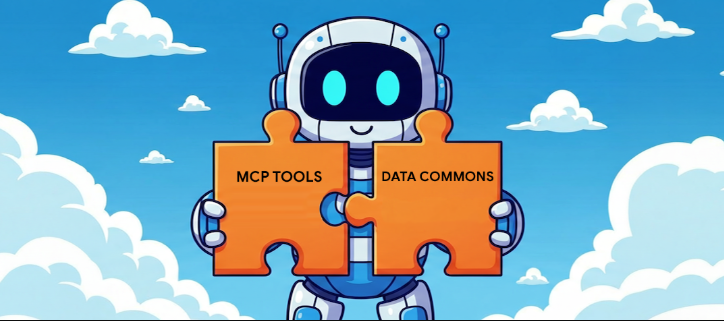
Google LLC today announced the launch of the Data Commons Model Context Protocol Server, a new tool designed to bring standards-based access to Data Commons’ interconnected public datasets.
Data Commons is an open knowledge repository launched by Google in 2018 to organize and link public datasets from domains such as economics, health, demographics and the environment into a unified graph. The repository was created to make trusted statistical data more accessible and usable for researchers, policymakers, developers and, with the launch today, now artificial intelligence systems.
The new Data Commons MCP Server gives AI developers and agent builders a reliable way to ground outputs in verifiable statistics rather than risking the pitfalls of model hallucination.
The MCP server has been designed to work as a standardized interface, allowing AI systems to query Data Commons directly without managing complex application programming interfaces. Google is positioning the MCP server as a foundation for building “data-rich” agentic applications by simplifying access to the statistical datasets.
The server integrates into existing development workflows through Google’s Gemini CLI and Agent Development Kit, with sample agents and Colab notebooks available for rapid prototyping. The idea is to make it easier for enterprises and independent developers alike to create agents that can pull reliable context directly into their reasoning.
In a blog post, Google gives an example of how the new service can be used, highlighting the ONE Data Agent, an agent created in collaboration with the ONE Campaign, which uses the MCP server to help advocates and policymakers explore global health financing data in natural language. Users can ask questions such as which countries face vulnerabilities in health budgets, generate comparative charts, or download datasets for further analysis.
“To compile a reliable report from traditional databases, users would need to work across datasets and manually pull data,” explained Google software engineer Keyur Shah. “Agents, however, understand complex queries and are able to fetch and compile the needed data quickly. The ONE Data Agent is paving the way for a new era of accessible, impactful data-driven advocacy.”
While only one example, the functionality can apply to many sectors. By enabling natural language access to trusted datasets, Google hopes to accelerate adoption of agentic applications across sectors where grounding in real-world data is critical, from public health to climate to economic planning.
Data Commons MCP Server also had broader implications around accuracy in AI outputs. By giving large language models a “data backbone,” Google addresses the growing demand for transparency and trustworthiness in AI outputs.
Of course, the effectiveness of the MCP approach depends on data freshness, coverage, accuracy and explainability, challenges that can be issues with global statistical systems. But it’s a step toward reducing the gap between advanced model reasoning and the structured, factual information that decision-makers depend on.
Image: Google



